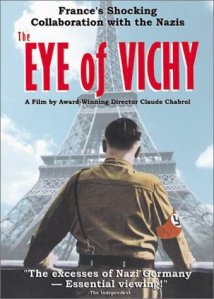Please Vote For Me (2007)
April 11, 2010
Director: Weijun Chen
Genre: Documentary
Country: China
Summary: Perhaps the first experiment of its kind, a Chinese elementary school holds a democratic election to determine the class president. The documentary follows the three young candidates as they plot their campaigns and aim for victory.
Impressions: I came into this movie instantly hesistant, because anytime the subject of a documentary is a child, I suspect foul play in the form of manipulation. The film poses the question: “Can democracy exist in China? Is it flawed? Is it a multicultural system?” This film seems to bring about many questions about democracy in general. Pay attention to details like this:
The initial three candidates are selected by the school board; they do not volunteer to run. Therefore, it is considered more of an assignment than a decision on their part. The teacher is informed at several times of the candidates’ plans to sabotage their opponents, but never extends a hand to stop it, no matter how debilitating it might be to a child’s self-esteem. Also, the parents continually use their pull with the school or their money to help their children.
Really, what I took away from this is: Sometimes people will do crazy things for power. Whether it be Cheng Cheng’s almost maniacal plans to sabotage his opponents and turn them against each other, or Liu Lei’s parents showering students with gifts, or Xiaofei’s mother pushing her daughter to continue against her will, everyone seemed to really want what was ultimately a position with no power. The ending shot shows two things, depending on how you interpret it: One, that the winner really gained nothing except bragging rights, or two, that democracy really didn’t change anything, and conformity to communism is still the norm.
This movie is only an hour long, so it’d be a shame to dodge this little social experiment, but I beg you: Don’t hate the kids. Some of them do stupid things, but remember: They’re just stupid kids. They don’t have any grand designs to piss people off like adults. They’re just being selfish, which is what little kids are best at doing.
3 out of 5
Eye of Vichy (1993)
February 4, 2010
Director: Claude Chabrol
Country: France
Summary: A documentary composed entirelly of newsreels from Nazi-occupied France, showing how propagada was used to include French citizens during WWII.
Impressions: It’s always sad to see movies like these because unfortunately they are completely true. The Nazis were pouring this type of propaganda down the throats of the French for years, until France was finally liberated by the Allied Forces. The propaganda ranges from commercials highlighting the value of occupied lifestyles to anti-semitic newsreels to German-made cartoons of Mickey Mouse bombing French families. There’s nothing in this film remotely true, and Chabrol arranges it in such a way that you can watch the progression from bad to worse, as the war starts to wear on Germany. It’s sad and makes you want to look at today’s media and cringe a little bit.
3 out of 5
Sicko (2007)
December 21, 2009
Director: Michael Moore
Genre: Documentary
Summary: Moore explores the health care industry in America, comparing its business model to those of foreign countries, in an attempt to discover what makes a good health care system.
Impressions: I feel bad for not watching this for two years… I kind of dropped the ball when it came out and never got around to it.
After watching so many documentaries in my life and studying them, writing papers about them, etc, I can longer look at them objectively. This is because there are two sides to every story, and Moore only provides one side: His side.
There’s no doubt in my mind that what happened to the American citizens who are interviewed in this documentary is tragic; however, Moore frequently misrepresents the truth in regards to American health care, foreign health care, and circumstances in general.
I like socialized medicine, but that’s me. Other people probably find the American system more helpful. I think it depends on your state of mind and body. I think the best thing about this movie is that it made Americans scrutinize the health care industry more carefully, allowing us to identify the real problems with both systems because they were being examined under a microscope called the Public Consciousness.
4 out of 5

